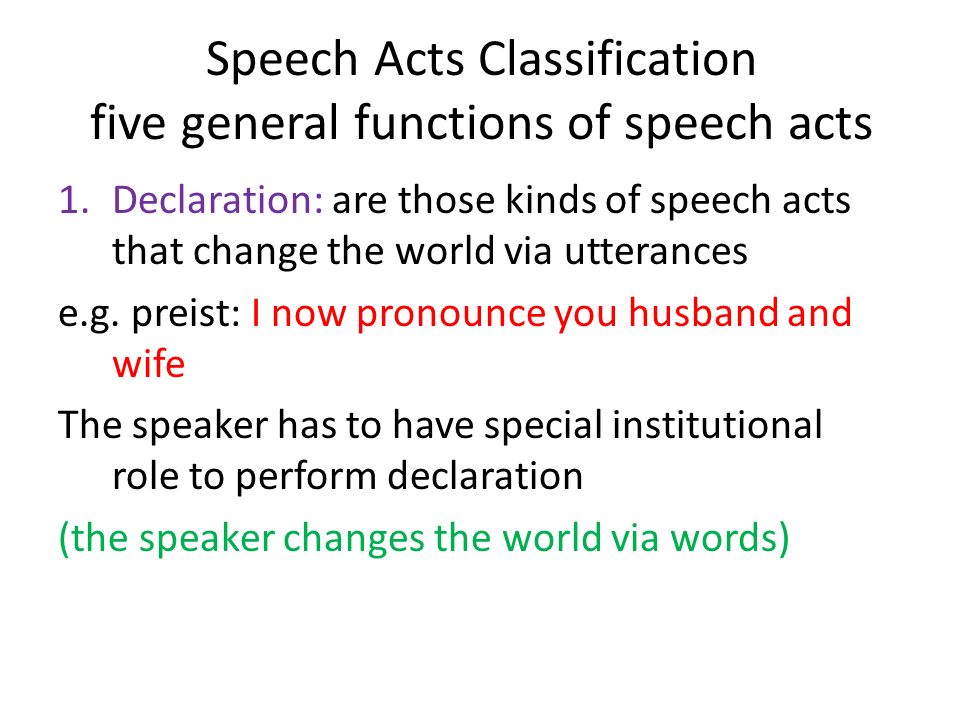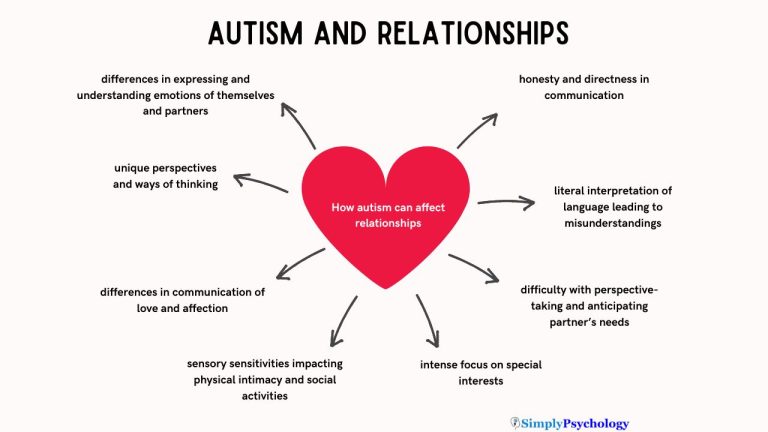What are the Functions of the Speech Act?
The functions of the speech act include conveying information, expressing emotions, making requests, giving commands, asking questions, offering assistance, and persuading others to take a particular action. In addition, speech acts can also be used to apologize, congratulate, thank, greet, and compliment others.
These functions are essential for effective communication and allow individuals to express their intentions and connect with others in various social and cultural contexts. Whether it’s a simple conversation or a formal speech, understanding the functions of speech acts helps create meaningful interactions and facilitates effective communication between individuals.

Credit: slideplayer.com
Types Of Speech Acts
When it comes to understanding speech acts, it is important to recognize that language is not just a means of communication, but also a tool for performing various functions. Speech acts are the actions performed through speech, where the utterance itself has an effect on the listener or reader. There are five main types of speech acts:
A. Assertive Speech Acts
Assertive speech acts, also known as constatives, are statements that aim to represent a specific state of affairs or convey factual information. These speech acts express beliefs, opinions, or judgments about the world. They can be true or false, depending on whether the proposition they assert corresponds to reality. Common examples include stating facts, making claims, and offering explanations.
B. Directive Speech Acts
Directive speech acts, also known as commissives, are utterances that are meant to influence or control the behavior of the listener. Unlike assertive speech acts, directives are not concerned with the truth or falsity of the proposition. Instead, they aim to get the listener to perform a specific action or behave in a certain way. Directives can take the form of commands, requests, invitations, suggestions, or advice.
C. Expressive Speech Acts
Expressive speech acts, also known as expressives, are used to convey the speaker’s mental and emotional states. These utterances reflect the speaker’s feelings, attitudes, or emotions towards a particular situation, event, or person. Expressive speech acts are not concerned with providing information or influencing others. Examples include apologies, congratulations, thanks, greetings, and condolences.
D. Commissive Speech Acts
Commissive speech acts, also referred to as declarations, are speech acts that commit the speaker to a future course of action. This type of speech act involves the speaker’s intention to carry out a specific task or fulfill a promise. Commissives create obligations and expectations on the part of the speaker and the listener. Examples of commissive speech acts include promises, vows, oaths, and guarantees.
E. Declarative Speech Acts
Declarative speech acts, as the name suggests, are utterances that bring about changes in the external world by simply stating that something is the case. When a speaker performs a declarative speech act, they are making something happen and altering the state of affairs. Examples of declarative speech acts include baptisms, pronouncing someone as married, declaring a winner, or firing someone from a job.

Credit: www.researchgate.net
Functions Of Speech Acts
In everyday communication, we use language not only to convey information but also to perform various functions. These functions, called speech acts, help us express our intentions, attitudes, and bring about changes in our social reality. Understanding the functions of speech acts can improve our interpersonal communication skills and enable us to have more effective and meaningful interactions with others.
Information Conveyance
When we communicate, one of the primary functions of speech acts is to convey information. We use language to share facts, give explanations, describe events, and express our thoughts and opinions. By doing so, we fulfill the function of information conveyance and enhance our understanding of the world around us.
Requesting And Directing
Another significant function of speech acts is to make requests or give directives. We use language to ask for help, request information, or direct someone to do something. These speech acts enable us to influence others’ behavior and achieve our goals by clearly expressing our needs or desires.
Expressing Feelings And Attitudes
Language also serves as a tool for expressing our emotions, feelings, and attitudes. By using speech acts, we can convey happiness, sadness, anger, or love to others. Our words have the power to impact the emotional state of those around us, allowing for better emotional connection and understanding in our relationships.
Promise And Commitment
Through speech acts, we can make promises and commitments. By using language to express our intentions and commitments, we develop trust and accountability in our personal and professional relationships. Promising and committing verbally adds a sense of responsibility, making us more likely to follow through on our words.
Creating And Transforming Social Reality
Speech acts also play a crucial role in creating and transforming our social reality. By using language, we can establish rules, make agreements, and create social norms. Through our speech acts, we shape and influence the cultural and societal aspects of our lives, bringing about change and progress.
Understanding the functions of speech acts helps us become more aware of how we use language to achieve our communication goals. By effectively utilizing these functions, we can enhance our relationships, express ourselves clearly, and bring about positive changes in our personal and social lives.

Credit: slideplayer.com
Frequently Asked Questions Of What Are The Functions Of The Speech Act?
What Are The 5 Speech Acts?
The 5 speech acts are: asserting (declaring something), questioning (asking), requesting (making a plea), commanding (giving an order), and promising (committing to do something).
What Is The Main Focus Of The Speech Act?
The main focus of a speech act is to effectively convey a message to an audience. It aims to engage listeners, express ideas clearly, and persuade or inform them about a particular topic or issue.
What Are The Functions Of Locutionary Speech Act?
The functions of locutionary speech act include conveying information, expressing thoughts, making statements, asking questions, and giving commands.
What Are The 3 Acts Of Speech Act Theory?
The three acts of speech act theory are locutionary, illocutionary, and perlocutionary acts.
What Are The Main Functions Of Speech Acts?
Speech acts serve multiple functions including expressing, questioning, requesting, commanding, and persuading in various communication scenarios.
Conclusion
To summarize, understanding the functions of speech acts is crucial for effective communication. Whether it is to assert, request, promise, or question, each function serves a specific purpose in conveying our intentions. By recognizing and utilizing these functions, we can enhance our speaking skills and ensure that our messages are delivered accurately.
So, next time you engage in a conversation, remember the power behind speech acts and make every word count.



